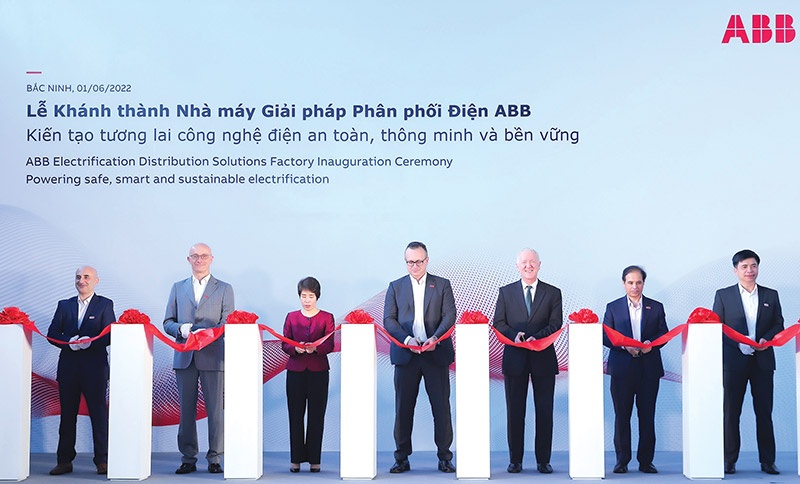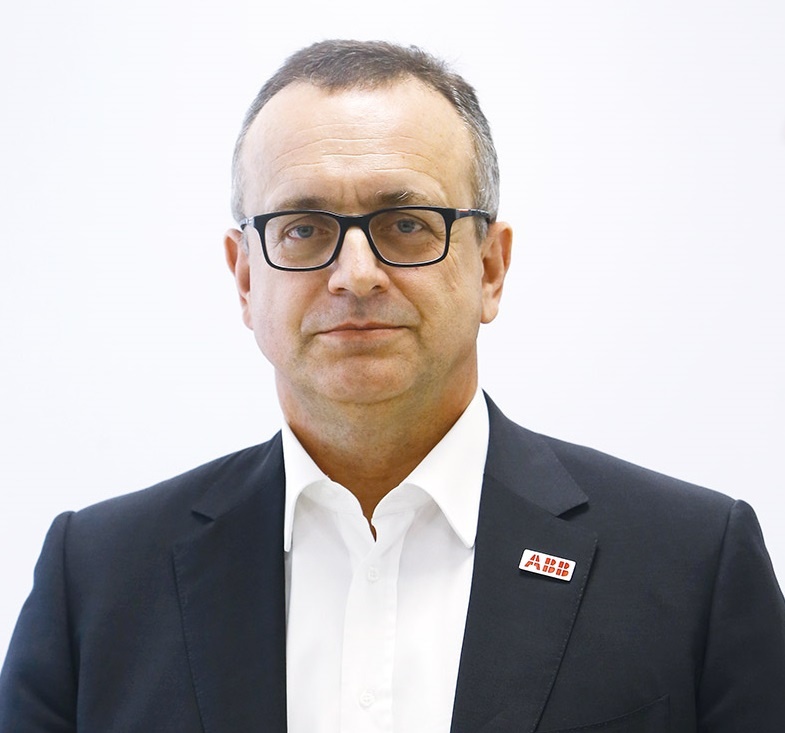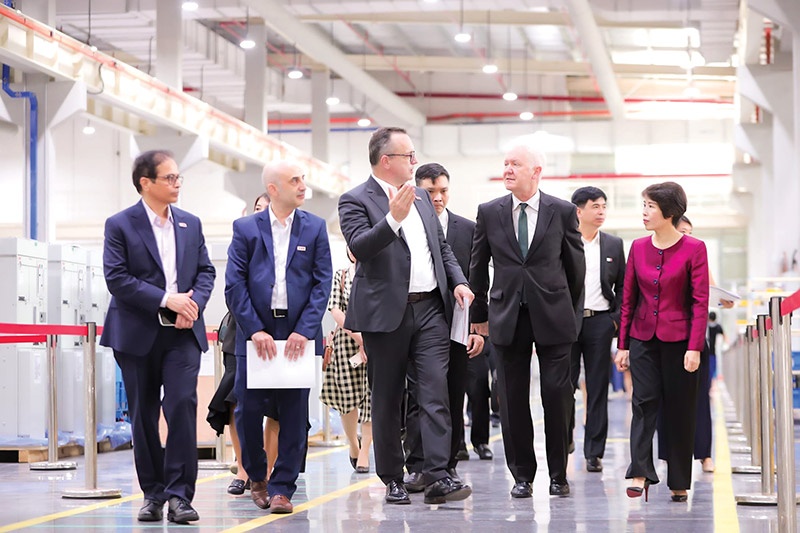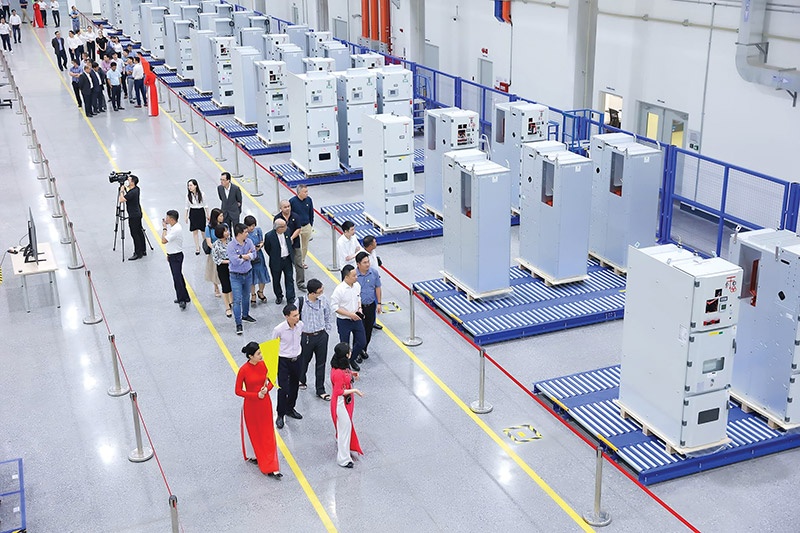ABB driving innovation and growth in smart electrification
 |
| ABB has kickstarted a new phase of development with the launch of a new factory in Bac Ninh province |
What are the megatrends that are shaping the future of electrification?
Our general energy consumption patterns will transition from a requirement for locally burned fuels – gasoline, oil, natural gas, and others – to a demand for electricity as a result of electrification.
The first megatrend is renewables and the second would be data centres, because of digitalisation and the surge in data demand. Third is mobility, because the world is moving away from fossil fuel to electricity in this area.
The last element is urbanisation. More and more people are concentrating in a few large urban areas, so the consumption of electricity that goes with it is more evident.
 |
| Alessandro Palin, president of ABB’s Distribution Solutions division |
The renewables boom and rapid acceleration of urbanisation bring prospects and new issues to tackle. How can we adapt to a more diverse supply?
Inevitably, as we need to deliver more energy to more points, we need more electrical equipment. It’s all about making sure that electric energy gets delivered in a reliable way with good quality. But at the same time, the electric network has become more complex because we are moving from an old traditional electric network with big power plants, which was mono-directional flow, to multi-directional, where even your electric car will be a source of energy one day if a network needs it.
Imagine having millions of electric cars in Hanoi, or a scenario where every household has solar or wind power stations installed on their roof. This means more energy is transmitted in many directions and in order to handle that, we need devices that are more intelligent.
Many of these technologies are available on the market now. When you look at the lifespan of one installation that lasts for 20-30 years, they are much more cost-effective than traditional components.
How has ABB been supporting ASEAN in driving innovation and growth in smart electrical distribution?
The fact that we have available products and solutions that enable an efficient application of renewable technology, and these solutions are themselves eco-efficient, is the obvious answer.
Some examples would be our low voltage circuit breakers with an intelligent system to optimise load management inside a factory, which leads to overall consumption optimisation, control systems for both medium and low voltage electric grids and networks that enable the optimal utilisation of renewables, and circuit breakers for medium and low voltages, which are made using recyclable plastics.
Our factories are also an example of contribution to sustainability, as we build facilities that are energy efficient while applying all the latest technologies.
 |
| Through the new factory in Bac Ninh, ABB can continue to address new ideas and smart inventions |
 |
Implementation of energy transition depends on both technological and incentive factors. What are some suggestions for Vietnam to ensure this?
The community and regulatory bodies need to be informed and aware not only of the existence of these critical elements in the environment but also of the existence of solutions. Technical alternatives are available. The Vietnamese government has already made a commitment to going the energy-efficient route. They just need to be aware that there are smart grid solutions which are ready.
So I think that it’s really important that Vietnamese technical authorities get properly informed of the latest technological progress in order to make informed decisions which will bring the country to the forefront of the modern electrical network.
In terms of regulations, I think it’s about giving incentives to the industries that are building new plants. Technological changes need to be driven by the law, by regulations, and cannot be left totally to individuals or private enterprises.
Can you share with us some of ABB’s upcoming projects and initiatives?
Our goal is to have products that are not only flexible and reliable but also sustainable. That requires significant investment on our side. Alternative solutions for the present require research, testing, prototyping, and assessing whether these technologies are reliable before going on the market – this is what we are doing and will continue to do.
On the other hand, we are always looking for new technical ideas, smart inventions, and also potential markets. With this, we organise annual startup challenges where we define a theme and invite a number of startups to participate. By collaborating with startups, we can learn from their entrepreneurial spirit and agile working style, while they can benefit from our resources, application experience, market reputation, networks, and access to the market.
While we have strong engineers, we constantly keep looking outside of our perimeter to make a quantum leap into something that we have not considered so far.
What the stars mean:
★ Poor ★ ★ Promising ★★★ Good ★★★★ Very good ★★★★★ Exceptional
Related Contents
Latest News
More News
- Masan Consumer names new deputy CEO to drive foods and beverages growth (February 23, 2026 | 20:52)
- Myriad risks ahead, but ones Vietnam can confront (February 20, 2026 | 15:02)
- Vietnam making the leap into AI and semiconductors (February 20, 2026 | 09:37)
- Funding must be activated for semiconductor success (February 20, 2026 | 09:20)
- Resilience as new benchmark for smarter infrastructure (February 19, 2026 | 20:35)
- A golden time to shine within ASEAN (February 19, 2026 | 20:22)
- Vietnam’s pivotal year for advancing sustainability (February 19, 2026 | 08:44)
- Strengthening the core role of industry and trade (February 19, 2026 | 08:35)
- Future orientations for healthcare improvements (February 19, 2026 | 08:29)
- Infrastructure orientations suitable for a new chapter (February 19, 2026 | 08:15)

 Tag:
Tag:



















 Mobile Version
Mobile Version